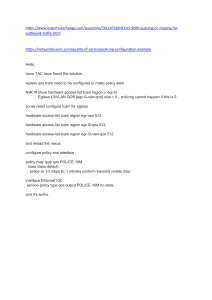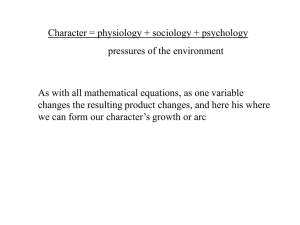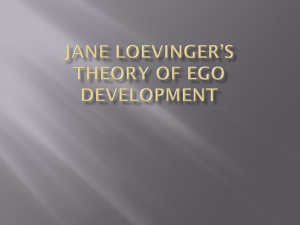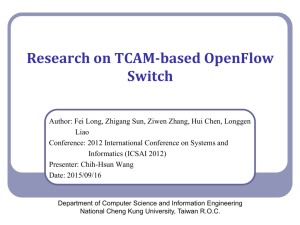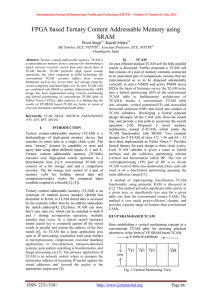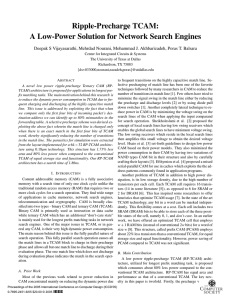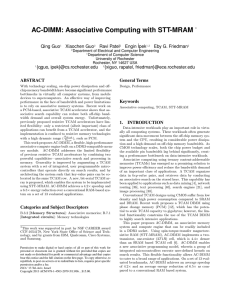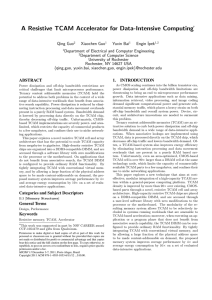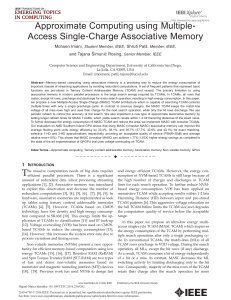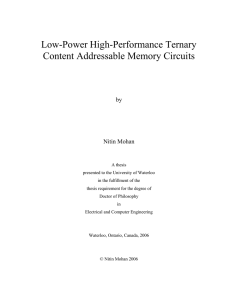here. - Tcam
advertisement
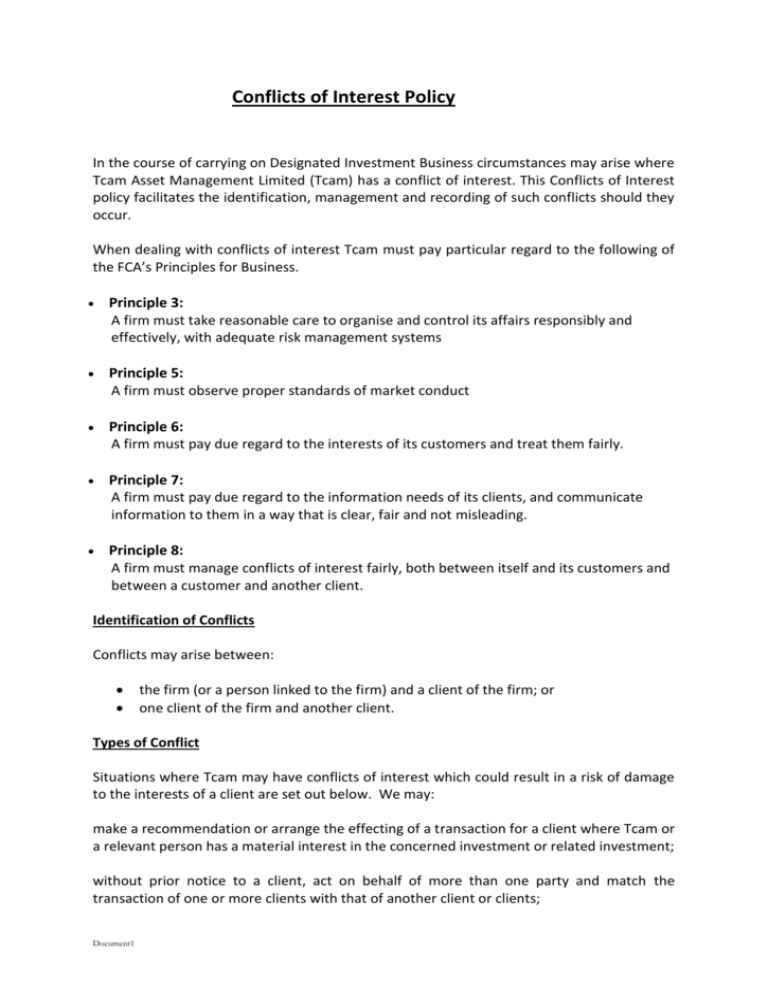
Conflicts of Interest Policy In the course of carrying on Designated Investment Business circumstances may arise where Tcam Asset Management Limited (Tcam) has a conflict of interest. This Conflicts of Interest policy facilitates the identification, management and recording of such conflicts should they occur. When dealing with conflicts of interest Tcam must pay particular regard to the following of the FCA’s Principles for Business. Principle 3: A firm must take reasonable care to organise and control its affairs responsibly and effectively, with adequate risk management systems Principle 5: A firm must observe proper standards of market conduct Principle 6: A firm must pay due regard to the interests of its customers and treat them fairly. Principle 7: A firm must pay due regard to the information needs of its clients, and communicate information to them in a way that is clear, fair and not misleading. Principle 8: A firm must manage conflicts of interest fairly, both between itself and its customers and between a customer and another client. Identification of Conflicts Conflicts may arise between: the firm (or a person linked to the firm) and a client of the firm; or one client of the firm and another client. Types of Conflict Situations where Tcam may have conflicts of interest which could result in a risk of damage to the interests of a client are set out below. We may: make a recommendation or arrange the effecting of a transaction for a client where Tcam or a relevant person has a material interest in the concerned investment or related investment; without prior notice to a client, act on behalf of more than one party and match the transaction of one or more clients with that of another client or clients; Document1 act for more than one client in the purchase or sale of an asset where the order cannot be executed in full; advise and provide services to a client who may have interests in investments that conflict with those of other clients; and in situations where we cannot offer a service, introduce clients to a 3 rd party. Managing Conflicts Tcam has various procedures in place to ensure where a conflict arises we are able to manage the situation effectively. Policy of Independence Tcam operates a Policy of Independence that requires employees to disregard any material interest or conflict of interest when advising a customer or dealing for a customer in the exercise of discretion. All employees are made aware of this policy. Cross Trades Where a cross trade is undertaken it must be recorded as an off market transaction, there must be documentation on file of each of the clients involved detailing the reasons that the trade was in the interest of the client. Compliance will review these transactions on a regular basis. Aggregation & Allocation of Orders Where, due to scarcity of an asset, we are unable to fill an order in its entirety we will allocate in accordance with our allocation policy to ensure fair treatment of clients. Suitability Where a Tcam product/investment vehicle is recommended to a client the reasons for assessing suitability must be clearly documented on file including how it is appropriate in regard to the clients’ attitude to risk, investment objectives and financial situation. In-house investment products are not purchased for a client under a discretionary mandate and advice is given in all cases. Personal Account Dealing Tcam has in place personal account (PA) dealing procedures for all those involved in the designated investment business of the firm. Any account over which an employee has discretion must be disclosed to Compliance. An external account disclosure notification is requested at least annually by Compliance. Prior to undertaking any transaction an individual Document1 -2- must first complete a PA dealing form, this must be signed by an Investment Manager and passed to Compliance for counter signature. Following completion of the transaction copy contract notes must be sent to Compliance. A STOP List will be maintained on the Intranet, employees will not be permitted to deal in any stock on this list. (These rules do not apply for dealings in life policy or units in a CIS; they also do not apply to accounts managed on a purely discretionary basis.) Non-Executives Some non-executives are currently active fund managers. As we wish to have unrestricted access to all funds that may be suitable for our clients we do not prohibit transactions in funds managed by non-executives, this gives rise to a potential conflict. To ensure we manage this potential conflict of interest none of the non-executives are involved in investment selection or investment strategy. All decisions on individual investment selection are made following our detailed research process. Once an investment need is identified then the research team review the investments available to meet the need and apply the same requirements and due diligence to each potential solution. For investments where a potential conflict has been identified additional steps over and above the standard investment process are then followed to ensure that no conflicts exist, specifically, an independent second sign off and review follows which requires dual sign-off by the CIO and External Member of the Asset Allocation & Implementation Committee (AAICo.). Finally, this is also reviewed by the Compliance Director. Outside Business Interests All employees, Directors and Non-executive Directors are required to disclose any outside business interest (OBI) to ensure these do not conflict with the duty owed to clients. Compliance will require the completion of an OBI disclosure at least annually. Remuneration The Remuneration Committee, chaired by a Non-Executive Director is responsible for setting the fixed and variable remuneration of code staff (those that can impact the risk profile of the firm). Senior Management are responsible for setting both the fixed and variable remuneration of all other employees. Any bonus element is linked to the overall profitability of the Company but under no circumstances is remuneration linked to specific transactions, products and/or client accounts. The fixed component makes up the majority of remuneration. Document1 -3- Inducements We do not receive any payments from product providers in respect of advising on their products. We have no arrangements in place with product providers that incentivise Tcam to promote a specific provider’s product. Where, in the course of a discretionary management arrangements, we may receive fund rebates these are passed through to the client and not retained by Tcam. Tcam has in place a gifts and hospitality policy for all employees. The provision and receipt of gifts and/or hospitality is first agreed by a line manager and notified to Compliance. Disclosure If we become aware of a conflict we should disclose this to the client prior to acting for them. This disclosure is in addition to AND NOT in place of the conflict management procedures which must be adhered to at all times. Recording of Conflicts Where a specific conflict is identified this is reported to Compliance for recording and monitoring purposes. If a conflict cannot be adequately managed it will be reviewed by Compliance and we may have to decline to act for a client. Reviewing Conflicts & Management Information Conflicts of interest management information (MI) is reported to the Risk & Compliance Committee which is chaired by the Non-Executive Director and Chairman of Tcam. The information will include all relevant information that enables us to demonstrate that we are identifying, eliminating and/or managing conflicts as set out within this policy. Policy Review This policy will be regularly reviewed by Compliance to ensure the identified potential conflicts remain current and that the process for managing these conflicts is sufficient to allow us to act in the best interest of our clients and to treat them fairly. The Policy will also be ratified by the Risk & Compliance Committee no less than annually. Document1 -4-
